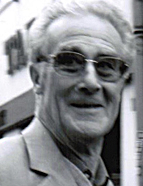

During his time in Lisbon from 1963 to 1969, Albert-Alain Bourdon embarked on in-depth research into contemporary Portuguese history, focusing particularly on the constitutional monarchy. This work culminated in his doctoral thesis, Bibliographie critique de l’Histoire de la Société portugaise du XIX e siècle , which he defended in 1966 at the Université de Toulouse under the supervision of Frédéric Mauro. Mauro, an eminent French historian associated with the second generation of the Annales school and a distinguished former student of Fernand Braudel, was one of France’s leading specialists in Latin American history. Bourdon then turned his attention to a critical study of the magazine Seara Nova [New Harvest]. On the advice of Joaquim Veríssimo Serrão, however, he quickly broadened his research to include the relationship between major ideologies and political life during Portugal’s First Republic. At the same time, recognising the limited awareness of Portuguese history among French university audiences, he published an abridged Histoire du Portugal (1970). This book was soon translated and published in Portugal in 1973. Notably, the final chapter, La situation actuelle , present in the French version, was omitted from the Portuguese edition. In the original version, Bourdon analysed the challenging political and international circumstances faced by the Estado Novo [New State] regime in the 1960s.
A few years later, Bourdon presented the findings of his research on the First Republic in a second doctoral thesis, Idées et Politique au Portugal sous la Première République (1910-1926). La crise portugaise et l’idéologie de Salut national . This thesis, supervised by Portuguese literature professor Claude-Henri Frèches, was defended in 1976 at the Université de Provence-Aix-Marseille as part of his application for the position of full professor. This seminal work examined the political and economic crises during the Republican regime, as well as the theories of "regeneration" or national "salvation" proposed by various Portuguese intellectuals of the time. What stands out, however, is the special attention Bourdon devoted to the Integralistas or Seafarers, including António Sérgio, Raúl Proença, António Sardinha, and Hipólito Raposo, who were a particular focus of his work. In addition to analysing the main political ideals espoused by these thinkers and examining the economic and institutional crises of the First Republic, Albert-Alain Bourdon provided a compelling account of the narrative of the crisis as constructed by the leading intellectuals of the period. He also argued that, despite the numerous "rationalist professions of faith" made by many of these intellectuals, they all remained "imprisoned" by a providentialist mystique of national history. This framework, he contended, was symbolically established by Luís de Camões in Os Lusíadas [The Lusiads], which continued to influence their outlook and rhetoric.
This work is financed by national funds through FCT - Foundation for Science and Technology, I.P, in the scope of the projects UIDB/04311/2020 and UIDP/04311/2020.
